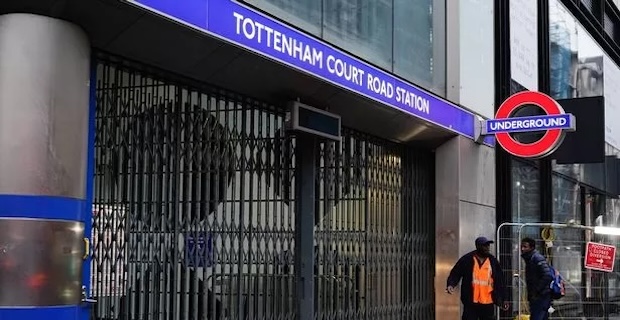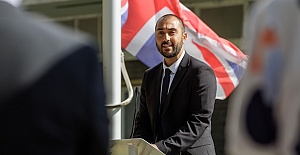Strikes by the RMT union have closed the underground, with Transport for London’s website crashing as commuters in the capital looked for alternative routes to work. Buses and the Elizabeth line were taking the strain with queues to board other modes of transport around London, as strikes by tube train and station staff left virtually the entire underground network suspended. Monday morning marked the first of four days of expected total shutdown to the tube through the strikes, which started in places on Friday with minimal disruption. Commuter misery as London tube network shut; oil prices climb and gold breaks through $3,600 – business live
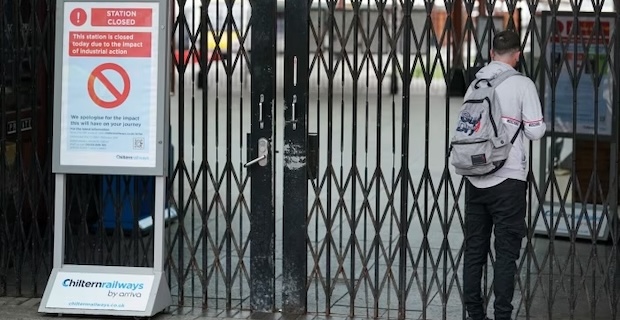
Very limited tube services on the outer, above-ground stretches of the Central and Metropolitan line started running later in the morning. The London Overground and most national rail services also continued to operate, although some major rail interchanges such as Farringdon were closed because of the RMT action. TfL’s online journey planner and its TfL Go app appeared to be struggling under the weight of searches, failing to load and returning error messages or no results early on Monday morning. The worst impact for congestion and transport is expected on Tuesday, with more Londoners still typically working from home on Mondays and Fridays. Docklands Light Railway trains will not run on Tuesday or Thursday because of strikes arising in a separate dispute. The ride hailing app Uber warned users of higher fares because of increased demand. Rides were quoted at multiples of normal levels, with some journeys costing about £50 for a five-mile trip in the capital. About 10,000 members of the RMT are taking part in industrial action in the tube row, as the union attempts to secure a shorter working week as part of pay negotiations. TfL has made a pay offer of 3.4%, which it urged the union to put to its members in a fresh ballot. It has said it cannot meet demands to cut hours below the current 36 a week.
An RMT spokesperson said: “We are not going on strike to disrupt small businesses or the public. This strike is going ahead because of the intransigent approach of TfL management and their refusal to even consider a small reduction in the working week in order to help reduce fatigue and the ill-health effects of long-term shift work on our members.” Nick Dent, the London Underground director of customer operations, said the demands were “simply unaffordable” and called on the union to end its action, adding: “It will be very damaging for us.” Support for the union came from the 4 Day Week Foundation. Joe Ryle, its campaign director, said: “It’s a bold and necessary stand, and these workers deserve widespread support. The five-day week is a century-old model that no longer reflects how we live and work today.” Underground services are not expected to resume until 8am on Friday should the strikes continue.


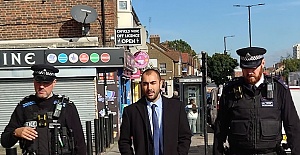 Enfield Labour welcomes new court order to stop antisocial behaviour in Edmonton Green
Enfield Labour welcomes new court order to stop antisocial behaviour in Edmonton Green David Lammy arrives in Downing Street after becoming deputy prime minister
David Lammy arrives in Downing Street after becoming deputy prime minister CTCA UK Condemns the Political Forcing Out of Afzal Khan MP for Engaging with Turkish Cypriots
CTCA UK Condemns the Political Forcing Out of Afzal Khan MP for Engaging with Turkish Cypriots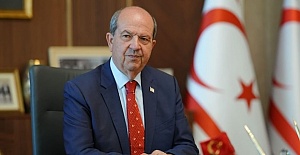 Tatar: “Reaction to MP’s TRNC visit is yet another stark example of the Greek Cypriot leadership’s primitive and domineering mentality”
Tatar: “Reaction to MP’s TRNC visit is yet another stark example of the Greek Cypriot leadership’s primitive and domineering mentality” 102nd Anniversary Celebration Ball of the Republic of Türkiye in London
102nd Anniversary Celebration Ball of the Republic of Türkiye in London Latest! Israeli navy intercepts Global Sumud Flotilla as it approaches Gaza to break siege
Latest! Israeli navy intercepts Global Sumud Flotilla as it approaches Gaza to break siege Enfield Labour Calls for Public Feedback on Crime and Safety Concerns
Enfield Labour Calls for Public Feedback on Crime and Safety Concerns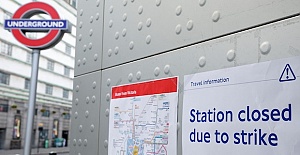 Important Travel Updates: London Underground and DLR Strike Action
Important Travel Updates: London Underground and DLR Strike Action Champions League, Liverpool lose at Galatasaray
Champions League, Liverpool lose at Galatasaray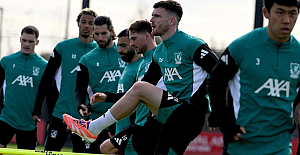 Liverpool flew out for their Champions League match against Galatasaray
Liverpool flew out for their Champions League match against Galatasaray Enfield Council has approved plans for Surf London
Enfield Council has approved plans for Surf London Zlatan Ibrahimović receives UEFA President’s Award
Zlatan Ibrahimović receives UEFA President’s Award Maritime Finance and Sustainability Take Centre Stage at LISW25 Gala Dinner
Maritime Finance and Sustainability Take Centre Stage at LISW25 Gala Dinner London welcomes traders back to the reopened Seven Sisters Market
London welcomes traders back to the reopened Seven Sisters Market Enfield’s Crews Hill and Chase Park shortlisted for potential New Town
Enfield’s Crews Hill and Chase Park shortlisted for potential New Town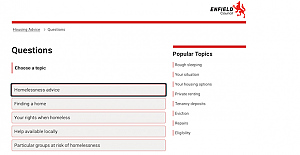 Important milestone achieved with no hotel placements for temporary accommodation
Important milestone achieved with no hotel placements for temporary accommodation





